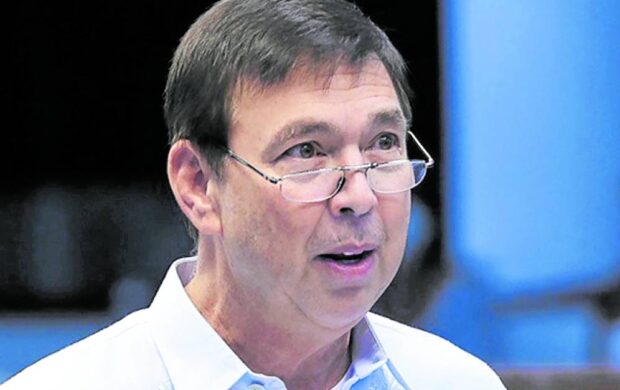MANILA, Philippines — House Deputy Speaker Ralph Recto on Sunday raised doubts over the claim of the Bureau of Immigration (BI) that it would be able to process the travel of passengers within 45 seconds if Congress would grant its budget request of P4.24 billion for 2024.
Meanwhile, Immigration Commissioner Norman Tansingco, defending the revised guidelines of the Inter-Agency Council Against Trafficking (Iacat) for Filipinos leaving the country, said these would ensure that immigration officers look at specific requirements and not require “frivolous” documents.
In a statement on Sunday, Recto described BI’s budget proposal as “their promissory note to taxpayers: Increase our budget to P4.24 billion and almost all passengers will be gone in 45 seconds.”
The Batangas lawmaker wondered how the BI would be able to make good on its word after the stricter guidelines imposed on Filipinos leaving the country.
“Will this create a logjam that will hassle not just travelers, but immigration officers as well?” he asked.
“If the processing is as lengthy as a job interview or a cross-examination (in court),…will the stricter rules cut speed?” Recto also said.
Defending the guidelines
Tansingco maintained that the guidelines “would clarify needed departure documents and eliminate unnecessary requirements and questions from immigration officers,” adding that “frivolous [documents] could later be a cause for complaints.”
Tansingco was apparently referring to a number of Filipinos who aired their grievances on social media about immigration officers asking what seemed to be irrelevant questions or demanding unnecessary documents, causing them to be offloaded or to miss their flights.
In one viral TikTok video, a woman said she missed her flight to Israel and had to book new tickets in December last year as a result of a lengthy interview with an immigration officer, who at one point asked for her yearbook and graduation photo.
That particular incident drew public outrage, with Sen. Grace Poe describing the requirements sought by the “overly enthusiastic” BI officers as “ridiculous” and “obviously frivolous.”
Migrant workers and human rights groups were also among those who criticized the new guidelines, saying these would be ineffective in stopping human trafficking, which Iacat said was the purpose of the regulations.
In a statement on Sunday, Tansingco reiterated that the new guidelines on departure formalities pose no additional requirements for departing tourists.
“In the updated guidelines, regular tourists are only required a passport valid for at least six months, a valid visa if visa required, a boarding pass, and a confirmed round trip ticket,” he said.
He stressed that the guidelines list down requirements for [different] categories of departing Filipinos, as well as those who may undergo secondary inspection.
“As in the past, only Filipinos [who] are subjected to secondary inspection due to red flags may be required to show additional supporting documents, which are now specified in the guidelines,” Tansingco said.
‘Profit center’
Recto, in questioning the BI’s budget proposal, noted that it was a whopping 163-percent increase from the bureau’s current allocation of P1.61 billion.
The bureau should “better deliver on this pledge because the P2.6-billion increase they are seeking will be for new equipment [which] in their own words [would be used for] ‘the enhancement of border management information system,’” he said.
He emphasized further that the new system must be effective in identifying undesirable aliens, such as undocumented workers hired by Philippine offshore gaming operators.
“[It should not] establish a ‘Berlin Wall’ of immigration hurdles to Filipinos going on budget tours to nearby Asian cities,” he said.
Recto pointed out that Ninoy Aquino International Airport (Naia) has virtually become a “profit center” for all state agencies involved in air travel.
He noted that the Manila International Airport Authority, which manages Naia, earned P15.2 billion in 2019, while the Tourism Infrastructure and Enterprise Zone Authority collected P7.2 billion in travel tax that year.
Even the Office for Transportation Security, which operates the X-ray screening machines at the airports, raked in P1.1 billion from airport security fees paid by travelers, Recto said.
“It was also in 2019 that BI reported a gross income of P10.5 billion,” he added.
